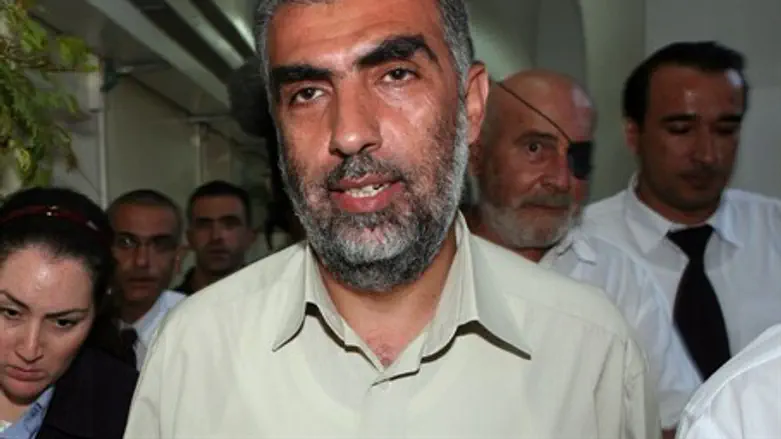
An Israeli Arab Islamist cleric was cut off mid-interview on official Palestinian Authority TV, after he advocated that Jerusalem should become "not only the capital of the Palestinian state, but the capital of the... Islamic Caliphate."
The awkward moment underscored tensions between the largely secular PA and its Islamist rivals, including Hamas, as well as fears over the spread of global jihadi ideology throughout PA-controlled areas of Judea and Samaria. Several groups sympathetic to the Islamic State (ISIS) terror group have arisen in parts of Judea and Samaria, including a Jerusalem-based cell which recently threatened to murder Twitter employees.
Kamal Khatib is the deputy leader of the Islamic Movement in Israel - an Islamist organization closely affiliated with the Muslim Brotherhood and Hamas, and which Israeli officials say is one of the key instigators of ongoing Muslim violence in Jerusalem.
Khatib initially called for Jerusalem to become the capital of an "Islamic Caliphate" at a rally outside the Al Aqsa Mosque on the Temple Mount - a focal point for Islamist violence against both Jewish visitors and Israeli security forces.
When questioned by his interviewer as to whether he was giving his support to ISIS - which itself declared a "Caliphate" in areas of Syria and Iraq - Khatib said he was not, but failed to distinguish between his own vision and ISIS's.
"The whole world will become subordinate to the Islamic Caliphate one day," he declared.
Khatib was cut off mid-rant as he moved on to describe ISIS as an American invention as part of a plot to invade the Middle East - a common theme among Islamist rivals of the terror group who dispute the leadership credentials of its self-proclaimed "Caliph" Abu Bakr al-Baghdadi.
Earlier this year, Israeli PM Binyamin Netanyahu announced he had instructed officials to explore banning the Northern Branch of the Islamic Movement, but it is unclear what progress if any has been made in implementing the ban.
The issue of radicalization among Israel's Arab citizens has hit headlines in recent weeks and months, after several cases of Israeli Arabs going to Syria to fight for ISIS were revealed - including the first Israei citizen to be jailed for the offense.
In response to the growing threat new legislation leveled an automatic five-year prison sentence for Israeli citizens who enlist in terrorist organizations.
